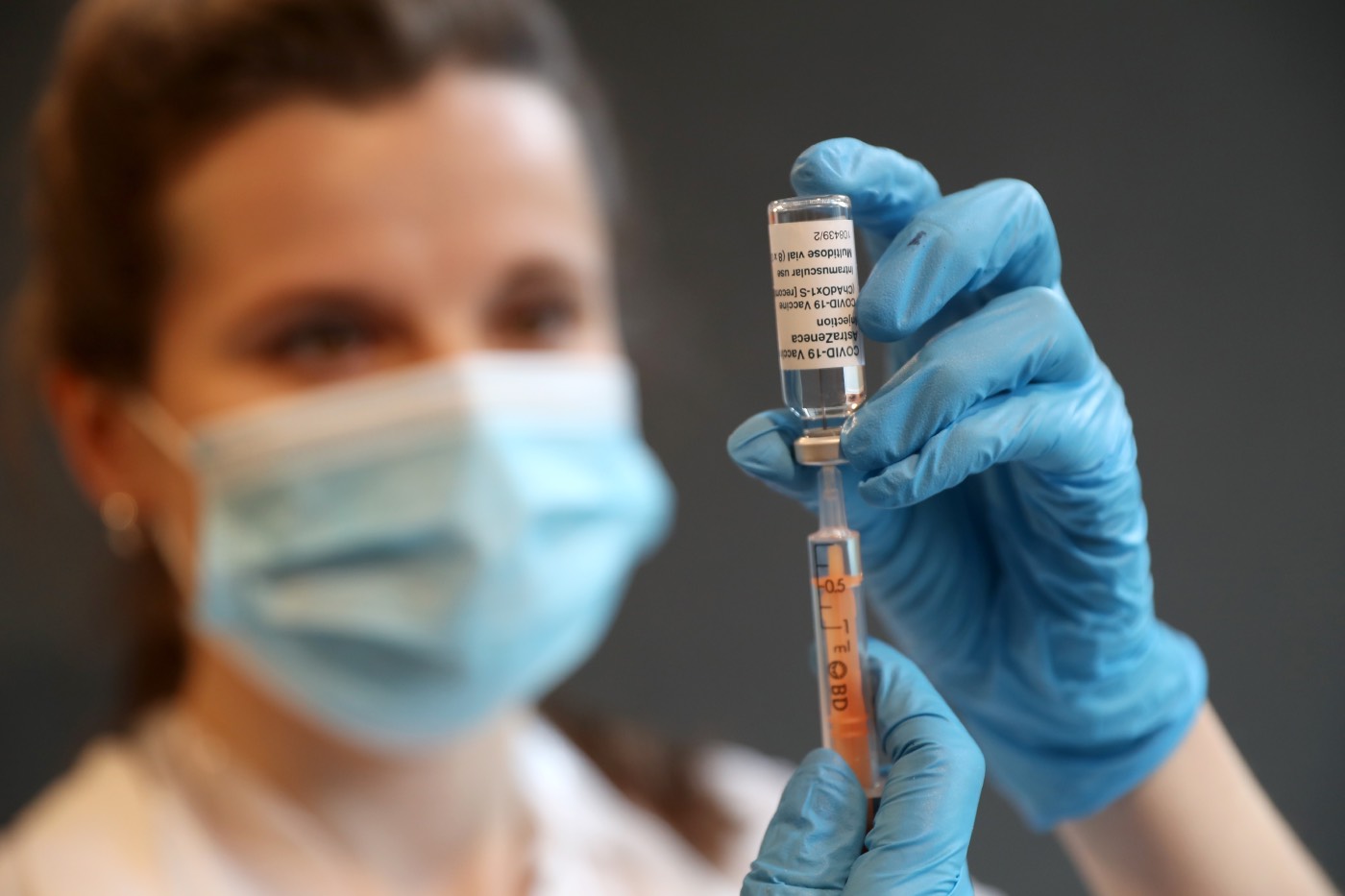The promise of longer-lasting immunity: ‘variant-proof’ Covid vaccine begins trials
On-trial jab may offer better protection against new strains of coronavirus

A free daily email with the biggest news stories of the day – and the best features from TheWeek.com
You are now subscribed
Your newsletter sign-up was successful
Trials for a “variant-proof” booster vaccine have begun in Manchester, raising hopes that the elderly and vulnerable could achieve long-lasting immunity against Covid-19.
Bolton-based couple Andrew and Helen Clarke, aged 63 and 64 respectively, were the first trial participants to receive the mRNA vaccine, which scientists hope will do away with the need to tweak jabs regularly to combat new strains, The Telegraph reported.
The results of the phase-one trial, which was launched by US pharmaceutical company Gritstone in collaboration with the University of Manchester and the Manchester University NHS Foundation Trust, are expected by the spring.
The Week
Escape your echo chamber. Get the facts behind the news, plus analysis from multiple perspectives.

Sign up for The Week's Free Newsletters
From our morning news briefing to a weekly Good News Newsletter, get the best of The Week delivered directly to your inbox.
From our morning news briefing to a weekly Good News Newsletter, get the best of The Week delivered directly to your inbox.
Most Covid vaccines target the coronavirus’s spike protein – a small grappling hook on the outside of the virus that it uses to latch onto human cells. However, new variants have spike protein mutations, which can make current vaccines less effective.
The new vaccine, currently called GRT-R910, contains other viral proteins that are less likely to evolve over time, and is also designed to induce a strong memory T-cell response.
The University of Manchester’s Professor Andrew Ustianowski, chief investigator for the study, said that “the immune response to first generation vaccines can wane, particularly in older people” and “we think GRT-R910 as a booster vaccination will elicit strong, durable, and broad immune responses”.
Lawrence Young, a virologist and professor of molecular oncology at the University of Warwick, who is not involved in the trial, told The Guardian that “using parts of the virus that are less prone to change in virus variants has the potential to provoke an immune response that will be more effective against all current virus variants and any future variants that might develop”.
A free daily email with the biggest news stories of the day – and the best features from TheWeek.com
The trial will be broadened to test the jab’s efficacy beyond the elderly and in other vulnerable populations. It will examine dose, safety, tolerability, and immunogenicity at least four months after the second dose of an initial vaccine.
The Clarkes said they had agreed to volunteer for the trial to “play their part” in ending the pandemic.
Andrew Clarke added: “Somebody has to be the first and we’re confident in the science and technology behind this vaccine and convinced of the need for it. We feel that this is perhaps a small part we can play in helping to make things change.”
-
 Political cartoons for February 16
Political cartoons for February 16Cartoons Monday’s political cartoons include President's Day, a valentine from the Epstein files, and more
-
 Regent Hong Kong: a tranquil haven with a prime waterfront spot
Regent Hong Kong: a tranquil haven with a prime waterfront spotThe Week Recommends The trendy hotel recently underwent an extensive two-year revamp
-
 The problem with diagnosing profound autism
The problem with diagnosing profound autismThe Explainer Experts are reconsidering the idea of autism as a spectrum, which could impact diagnoses and policy making for the condition
-
 A Nipah virus outbreak in India has brought back Covid-era surveillance
A Nipah virus outbreak in India has brought back Covid-era surveillanceUnder the radar The disease can spread through animals and humans
-
 Covid-19 mRNA vaccines could help fight cancer
Covid-19 mRNA vaccines could help fight cancerUnder the radar They boost the immune system
-
 The new Stratus Covid strain – and why it’s on the rise
The new Stratus Covid strain – and why it’s on the riseThe Explainer ‘No evidence’ new variant is more dangerous or that vaccines won’t work against it, say UK health experts
-
 RFK Jr. vaccine panel advises restricting MMRV shot
RFK Jr. vaccine panel advises restricting MMRV shotSpeed Read The committee voted to restrict access to a childhood vaccine against chickenpox
-
 RFK Jr. scraps Covid shots for pregnant women, kids
RFK Jr. scraps Covid shots for pregnant women, kidsSpeed Read The Health Secretary announced a policy change without informing CDC officials
-
 New FDA chiefs limit Covid-19 shots to elderly, sick
New FDA chiefs limit Covid-19 shots to elderly, sickspeed read The FDA set stricter approval standards for booster shots
-
 RFK Jr.: A new plan for sabotaging vaccines
RFK Jr.: A new plan for sabotaging vaccinesFeature The Health Secretary announced changes to vaccine testing and asks Americans to 'do your own research'
-
 Five years on: How Covid changed everything
Five years on: How Covid changed everythingFeature We seem to have collectively forgotten Covid’s horrors, but they have completely reshaped politics